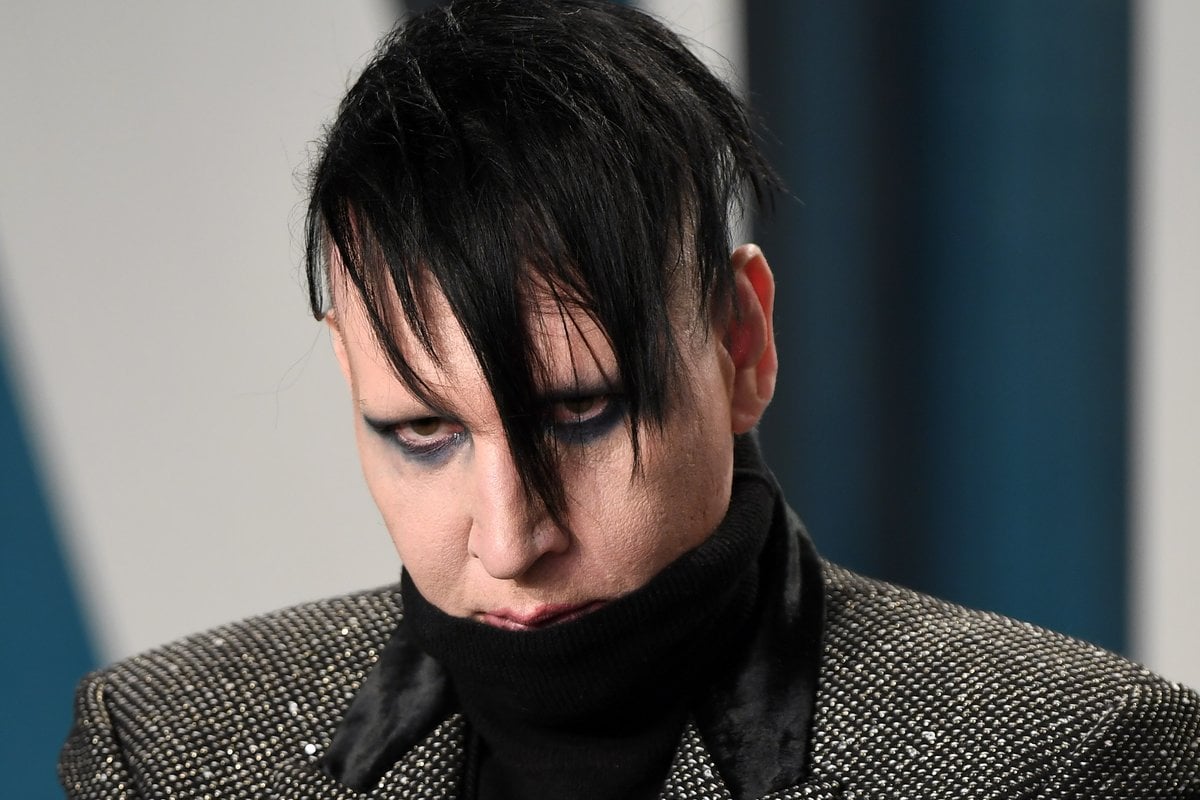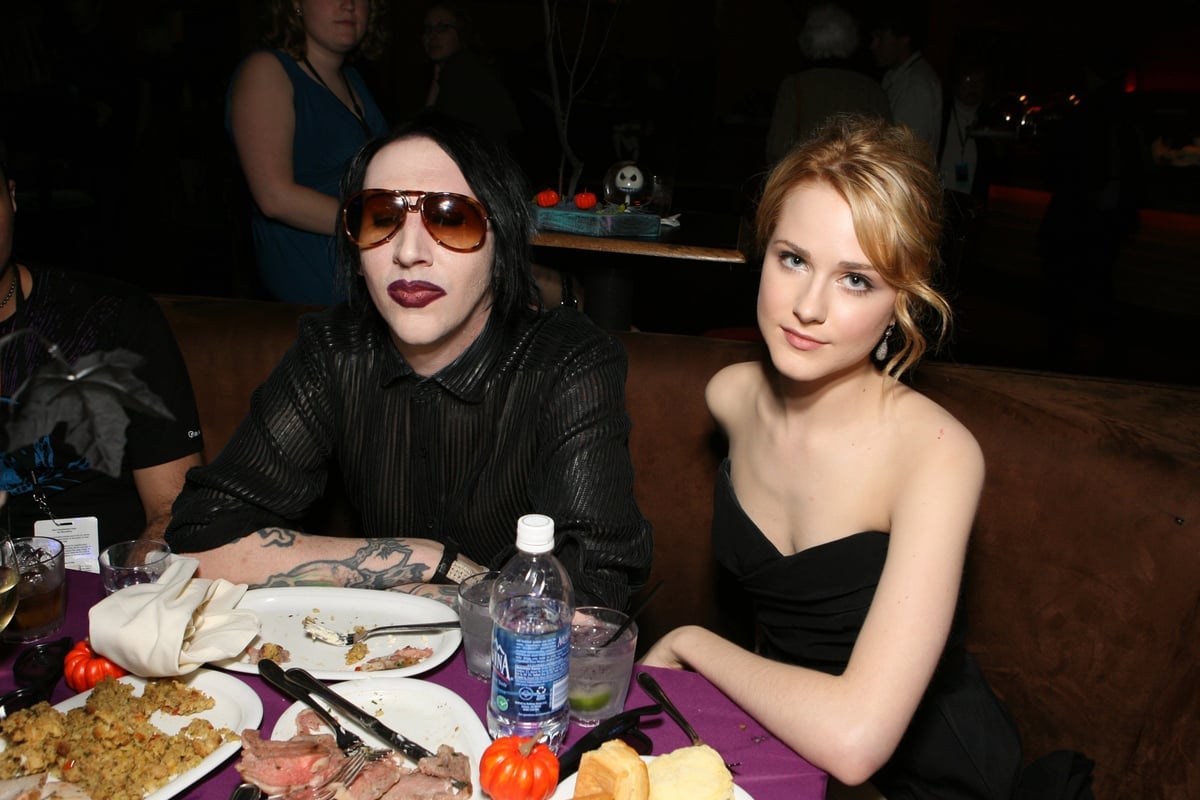
This post deals with domestic violence, sexual assault, and self harm. It may be triggering for some readers.
This week, Evan Rachel Wood accused Marilyn Manson of being a "dangerous man" who subjected her to years of abuse.
The Westworld actor, who was 18 years old when she first met Manson, dated the industrial metal musician for several years. When their relationship began, Manson was 36 years old.
"The name of my abuser is Brian Warner, also known to the world as Marilyn Manson," Wood, now 33, shared on Instagram.
Watch: Evan Rachel Wood spoke about standing up to domestic violence in 2019. Post continues below.
"He started grooming me when I was a teenager and horrifically abused me for years. I was brainwashed and manipulated into submission," she continued.
"I am done living in fear of retaliation, slander, or blackmail. I am here to expose this dangerous man and call out the many industries that have enabled him, before he ruins any more lives.
"I stand with the many victims who will no longer be silent."


